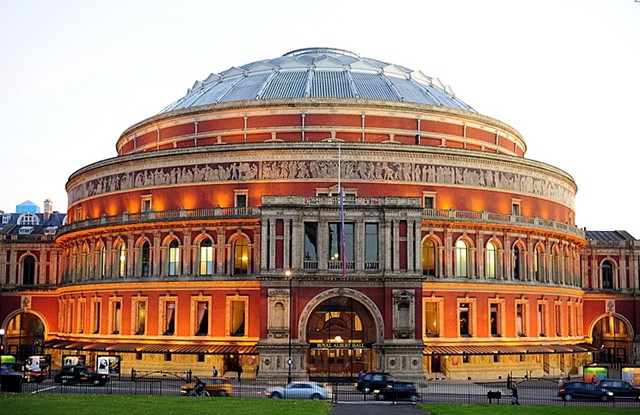
Not a bad venue for a first performance...
40 years ago, on Saturday 3rd August 1974, two Yorkshire bands arguably gave the most significant concert performance in the history of the brass band movement.
If the appearance of Black Dyke and Grimethorpe in a Promenade concert at the Royal Albert Hall came as a surprise to those still getting to grips with the decision to allow percussion at the Regional Championships, then it was nothing compared to the shock the classical musical world felt when the announcement was made by the BBC Controller of Music, Robert Ponsonby.
Sneer of contempt
Czechoslovakian conductor Jiri Belohlavek may well have coined the saying that the Proms were ‘the world's largest and most democratic musical festival’, but in 1974, the news was still greeted by a noticeable sneer of contempt by the musical establishment, which was still recovering its sense of ‘noblesse oblige’ after opening its Proms doors to the prog-rock band Soft Machine in 1970.
As one acid tipped correspondent wrote in misquoting Sir Thomas Beecham in the national press: ‘Brass bands are all very well in their right place - outdoors and several miles away from the Albert Hall’.
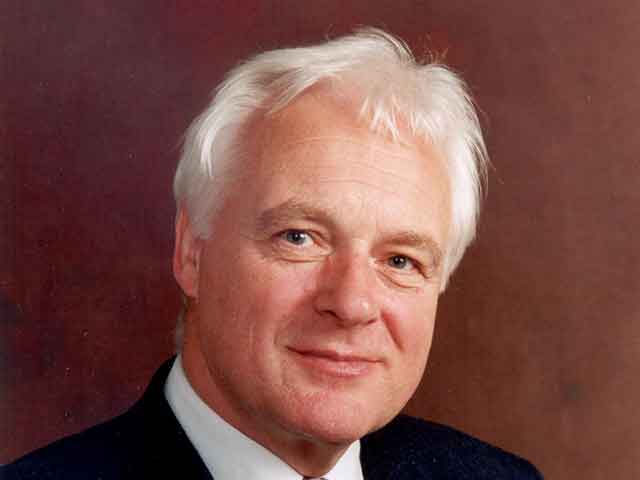
The man at the helm: Elgar Howarth
Influence
How the decision to include brass bands for the first time was made remains unclear, but the influence of Elgar Howarth cannot be underestimated.
In 1973 he had left the Royal Philharmonic Orchestra and had begun a process of commissioning works for the brass band medium from the likes of Hans Werner Henze and Harrison Birtwistle.
Radical change
As author Trevor Herbert later wrote; he was (alongside Howard Snell and later James Watson) a ‘catalyst for change, and the change was radical’ - and in late 1973 he had led Grimethorpe in a concert at the Bishopgate Institute in London before an invited audience of composers, concert and recording agents and friends.
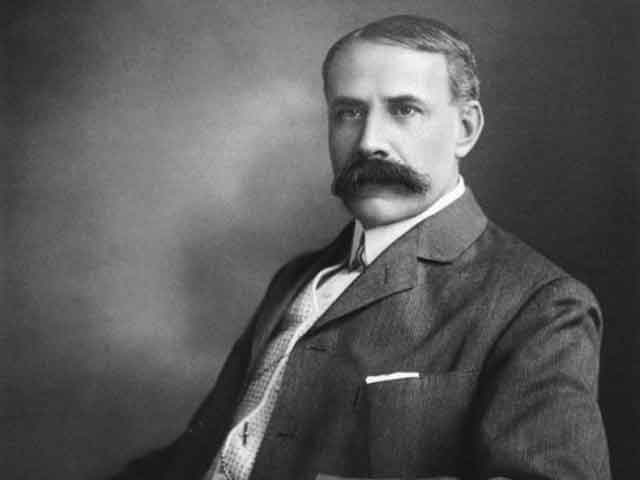
A touch of tradtion to open with Edward Elgar
The programme included ‘The Severn Suite’, a movement of his ‘Trumpet Concerto’, two arrangements of music by John Bull and Harrison Birtwistle’s ‘Grimethorpe Aria’ (with the composer in attendance) and gained widespread critical acclaim.
Resonated
It was artistic support which resonated further at the BBC when the band received a well publicised standing ovation following another high profile London concert at the Queen Elizabeth Hall.
With Grimethorpe’s concert profile and Black Dyke as the reigning British Open champion, the BBC announced that the first half of the ‘Prom 16’ programme (which was to be shared with the BBC Concert Orchestra and the BBC Singers) would be ‘Severn Suite’, ‘A Moorside Suite’, ‘Grimethorpe Aria’ and Grainger’s ‘Seventeen Come Sunday’ - to be conducted by Elgar Howarth.
Curious mix
The news was greeted with a curious mix of pride and apprehension in the banding press in June 1974, although British Bandsman remarked that; “It is a significant occasion and the latest of the considerable signs that brass bands are becoming ‘respectable’ in the musical strongholds of our country.”
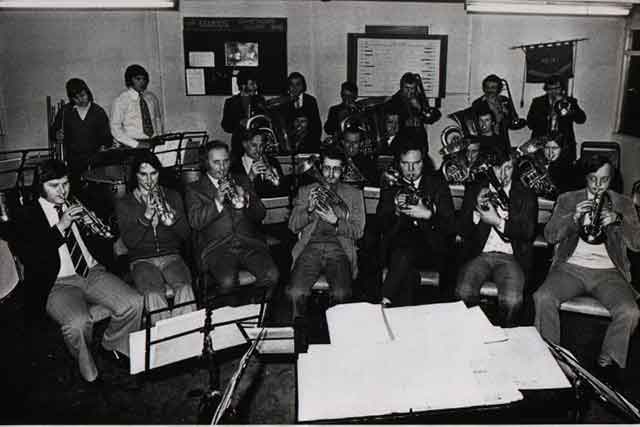
Grimethorpe do things their way...
Sunday Times
Meanwhile, national pre- Proms media coverage seemed to balance genuine admiration with lazy stereotyping, as Michael Moyniham of The Sunday Times wrote on 7th July following a visit to Grimethorpe: “Mutual respect is evident as suave conductor and bluntly spoken players get to grips with the trickier bits in the practice hall.
The miners, most of who work at the coal-face, have been down the pits from 6am to 12.45pm, and have had time only for a change of clothes, a snatched meal and a pint at the institute bar before the 3 hour rehearsal begins at 2pm.”
He did add though: “Most of the miners started playing young, often with a grounding in Salvation Army bands, and music to them is like racing pigeons or whippets is to other miners, an escapist hobby, an obsession.”
Assertive
Howarth though was much more assertive as he told the journalist in no uncertain terms: "British brass bands are the best in Europe, if not the world. And Grimethorpe is the cream of the best. Super players. Super people.”
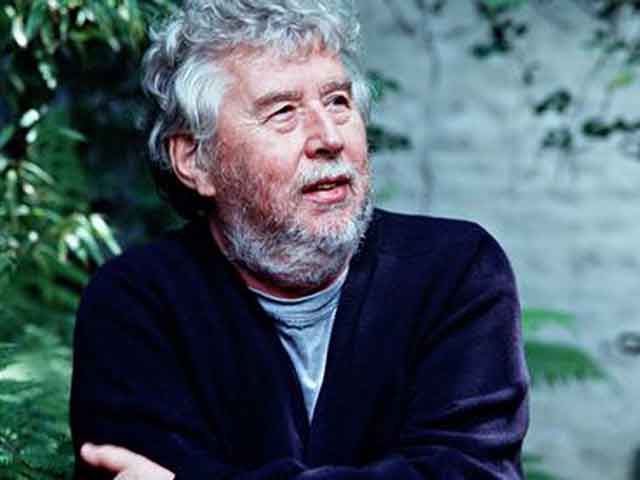
Man on the edge - Harrison Birtwistle
Sceptical
That also appeared to have been the opinion of an initially sceptical promenade audience, squeezed tightly into the area in front of the Royal Albert Hall stage, like a shoal of slightly eccentric middle class sardines.
As a subsequent article recalls: “The suave Elgar Howarth walked onto the stage in his midnight blue velvet suit to be greeted with another of those ‘quickies’: "Where's thi flat cap, then?" to which Mr. Howarth gestured with a stroke at the back of the head.”
Adoration
However, by the close of the first half, laughter had been replaced by a sense of collective adoration (the hall was packed with an estimated 8,000 listeners) as the writer noted: “The audience would not let Grimethorpe and Black Dyke Mills Band, who were appearing with the colliery band, go off stage as Elgar Howarth, Grimethorpe's conductor, was called back onto the rostrum seven times.
The enthusiastic Promenaders must have been wondering why, after 80 seasons of the Proms, brass bands have never been heard before.”
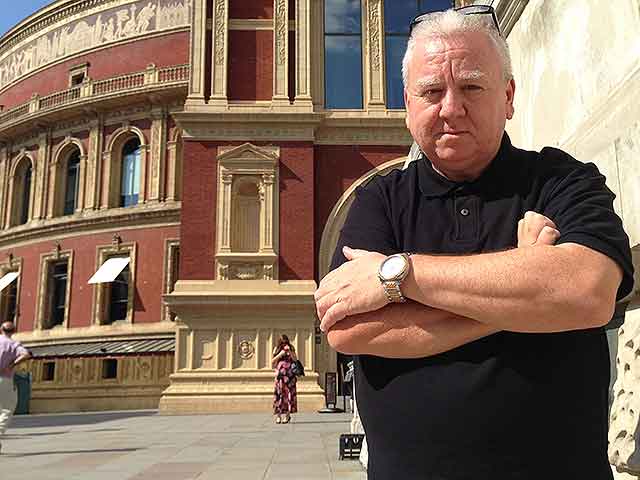
Back to the Albert for Ian Pearce
Nervous
Ian Pearce was a 15 year old percussionist with Grimethorpe on the day - having joined the band just a week before. He was to stay for another three memorable years.
“I was so nervous before we went on that the great trombonist Stan Priestley made me drink a little shot of whisky. I always remember him taking to the stage and just picking up the paper planes that the promenaders had thrown, and playfully flying them back into the hall.”
Stun
He added: “We opened with ‘Severn Suite’, which seemed to stun the audience, and then performed ‘Grimethorpe Aria’. Howarth was majestic and commanded the bands with such control and precision.
However, I was unaware that the scruffy looking bloke dressed in jeans sat near to me on the side of the stage was in fact Harrison Birtwistle, until he was coaxed out by Elgar Howarth to accept the applause!”
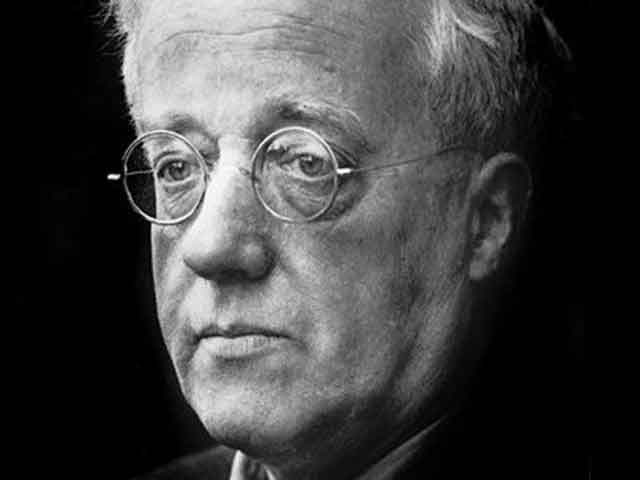
Holst as the finale
Drama for finale
By now Howarth had the audience in the palm of his hand and with the BBC Singers the bands performed ‘Seventeen Come Sunday’ before the finale of ‘A Moorside Suite’, which saw the snare drums placed in the choir stalls to add choreographed drama to the final movement.
Ian recalls the outcome vividly: “By now the nerves had subsided and I was simply enjoying myself. At the end of the piece the audience just went completely wild. Howarth initially looked stunned but then reveled in the moment, making sure the two bands were given the show of appreciation they deserved.”
Encores
Encores were demanded, and two renditions of Howarth’s arrangement of ‘King’s Hunting Jigg’ saw the audience in raptures and the BBC radio executives go into meltdown as the scheduling for the second half of the concert featuring the BBC Concert Orchestra ran 10 minutes late.
Critical reaction
Post Proms critical reaction was generally favourable, with one writer adding: “Now that it has been established that brass bands are good enough to appear at the Proms, we may see, hopefully in the near future, a Prom devoted to brass bands instead of them sharing a bill.”
Strangely though, the brass banding press was less glowing in its praise, with Michael Brand offering the opinion in British Bandsman that; “The combined forces of Black Dyke and Grimethorpe produced a sonority which, although not making use of dynamic contrasts to their fullest extent, nevertheless had a great impact on one who is used to the traditional band sound.”
He added: “By the end of the concert, the audience were wildly enthusiastic, although in Elgar’s ‘Severn Suite’ and Holst’s, ‘Moorside Suite’ the unit of the two bands was not quite at is best. Amateur percussion players suffer by direct comparison to professionals in a way that brass players do not.
Even here however, occasional faulty intonation and imprecise ensemble reminded one that this was probably a difficult occasion for the bands to guarantee their best. Mr Howarth was not as comfortable in this idiom as he was in the Birtwistle.”
Icebergs
It may have taken 80 years for brass bands to make their first appearance at the Proms, but it seems that not everyone was entirely impressed - although British Bandsman did state in an editorial feature: “The concert on Saturday was the tip of the iceberg - but with icebergs, it is only appreciation of the tip which can prompt further exploration of the whole. The tip was appreciated by audience and critics alike.”
Thankfully, it was not to be as long before brass bands were to return again after Grimethorpe and Black Dyke’s historic appearance (1975 in fact), although to this day the musical iceberg still remains very much hidden beneath the Proms musical waves.
Iwan Fox













